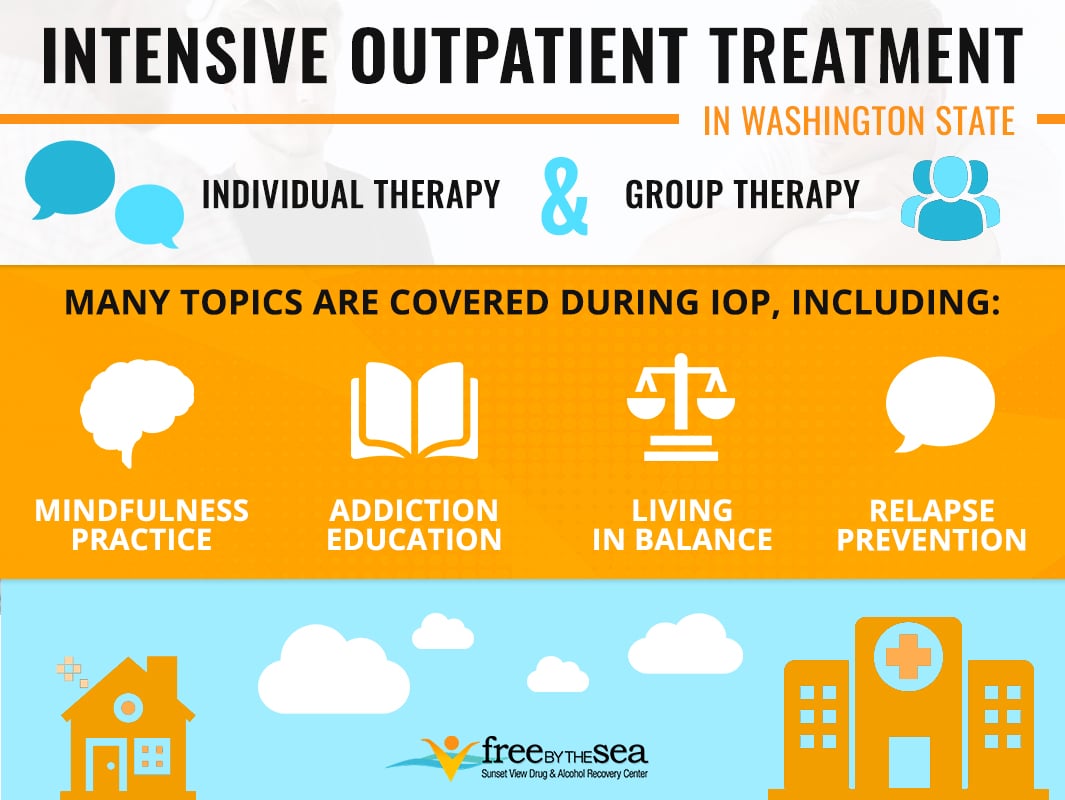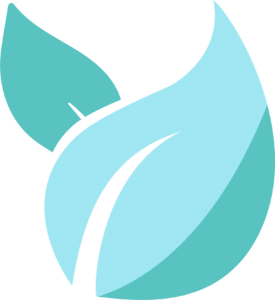Free by the Sea provides outpatient treatment through partial hospitalization (PHP) and intensive outpatient (IOP) for individuals seeking addiction treatment for alcohol and drug rehabilitation. Our outpatient treatment for addiction is designed to provide a safe, structured treatment facility while providing an opportunity for clients to begin integrating back into their lives outside of addiction treatment.
Outpatient facilities focus on addiction rehab outside of treatment centers and also provide more flexibility for the patient’s schedule. Many individuals are finding that they can enter sobriety in their own time while surrounded by a support system in the comfort of their own homes. The recovering addict develops informational tools and grows in a community that surrounds them with constant reassurance. Through this support, individuals can begin to realize that they will overcome their addiction! All the while, those in outpatient rehab can live their daily lives, carrying out a normal schedule.
The Difference Between Inpatient and Outpatient Treatment
Inpatient facilities are those you normally think of when rehab comes to mind. Our inpatient facilities here at Free by the Sea help those in need of substance abuse treatment in Washington to overcome their addictions. These are monitored by our staff 24 hours a day because the patients that are admitted into inpatient treatment have a high risk of overdosing.
As opposed to inpatient, intensive outpatient programs allow you to live a more “normal” lifestyle while attending your therapy sessions. You will still be able to work or attend school and base your treatments around your day-to-day schedule. Intensive outpatient programs allow patients to move at their own pace when it comes to the intensity of their rehab programs.
A huge difference between inpatient and outpatient services is also the cost. Because you are being housed within our facilities, inpatient treatment at Free by the Sea can cost a lot more out of your own pocket. If you are facing a mild addiction and have been cleared by our specialists, intensive outpatient programs are a great alternative to staying within our facilities.

What to Expect When You Arrive
New clients will first meet with our intake and admissions specialist to ensure they feel safe and comfortable in their new surroundings. Clients in our substance abuse intensive outpatient program will also undergo a thorough assessment with a certified chemical dependency counselor. The assessment provides the insight required to develop a unique and effective addiction treatment program tailored to the client’s individual needs. It covers a client’s background and personal history, addictions and patterns of use, and other issues pertinent to the client.
Many of our clients will transition to our outpatient levels following the completion of Free By the Sea’s residential program, although there are some cases where a client may begin their addiction treatment at an intensive outpatient level if deemed appropriate by clinical staff. In such cases, we may also provide medical detox Washington to ensure a safe and supervised start to recovery. We will introduce potential patients to their program supervisors and therapists and inform them of how long possible treatments can last and the steps they will take to recover.
What Does Intensive Outpatient Consist of?
Many intensive outpatient programs include group therapy, one-on-one counseling, 12-step meetings, family therapy, and educational group sessions. What sets Free by the Sea apart is we also cover topics in group therapy and one-on-one counseling, such as:
- Trauma
- Relapse prevention
- Early intervention services
- Dialectical behavior therapy
- Mindfulness treatment practices
- Shame and resilience
- Addiction education
- Living in balance
- Spirituality
- Life skills
In addition to educational groups, we offer other treatment services, such as relapse prevention groups. In such groups, clients will have an opportunity to increase insight into the addiction and recovery process. Individuals will also have the opportunity to develop interpersonal skills and connections to others who are in recovery.
Additionally, clients attend self-help support groups and have the opportunity to come and go off the campus to enjoy the beach, seek employment and housing opportunities, and begin integrating back into activities of daily living with the support and accountability of Free by the Sea’s staff.
We also offer treatment for those with co-occurring disorders. Our treatment sessions focus heavily on the whole person while helping each client develop strong coping strategies. For some individuals, alternative treatments can be highly beneficial.
Therapies in a Substance Abuse Intensive Outpatient Program (IOP)

We offer a range of therapeutic services at Free by the Sea to support each person’s unique recovery journey. Some of the programs included in our intensive outpatient rehab in Washington may include, but are not limited to, the following:
- Individual Therapy Sessions: This is the individual counseling you will receive from our trained therapists at Free by the Sea. By getting to the core of what has caused your addiction, it will be easier for us to determine what the next steps are in helping you overcome it.
- Family Therapy: Our family therapy sessions will include rebuilding your relationships with loved ones that you may have lost while you were going through your substance abuse and mental health troubles. This can bring more insight into any history of addiction within your family, and it will also help your family members understand what you were going through while under the influence of your addiction.
- Recreational Therapy: We use recreational therapy at Free by the Sea to enhance your mood through endorphins, the chemicals that are released in your brain when you exert energy. Our campus has 5 acres of beachfront property that you may enjoy, as well as volleyball courts, a gym, and basketball areas. We believe that being active and forming healthy habits will allow you to find other outlets away from your drug and alcohol abuse.
- 12-Step Programs: These programs allow you to dive into your spirituality. Not everyone sees the world in the same light, but it is important to believe in the higher power of something. We encourage you to explore what that “something” means to you.
Are Intensive Outpatient Programs Effective?
There are many instances when substance abuse intensive outpatient programs are a better option when wanting to receive help for an addiction disorder. It is perfect for those who need to continue to provide for their families by working or those who are in school and trying to finish out their degrees. Intensive outpatient treatment is also a great starting point for those who are unsure of what to expect in addiction treatment. By allowing patients to maintain a somewhat flexible schedule, we understand that it is allowing them a better chance for IOP treatment completion.
Intensive outpatient substance abuse treatment may be the right fit for you if you are experiencing a mild form of addiction, or you have just graduated from one of our residential treatment programs. Once a psychological evaluation is done by one of our specialists, we will be able to determine whether or not outpatient could be a helpful addiction treatment option for you.
Although it is very beneficial for some individuals, there are a lot of instances when inpatient rehab is a better fit for someone looking to be treated for their addiction. If an individual has a history of relapsing easily after completing time in rehab, inpatient programs are probably a better choice.
Residential treatment programs are intensive enough for these individuals because they require constant supervision and structure. This makes it harder to fall back into old patterns. It is also a great option for people who face constant temptation in their day-to-day lives. For instance, if they live with roommates or family members who also abuse the substance.
Make the Most of Your Time in Rehab
Once admitted to our substance abuse intensive outpatient program, it is important to use your time within our facilities and with our staff wisely. We understand that a lot of your attention has been focused on your addiction for a very long time, and it has hindered your everyday life to the point of needing professional help.
When the initial shock of beginning the recovery process is over, you will begin to enjoy life again as you knew it before your addiction happened. Take the time in your therapy sessions to really understand why this happened and how you can prevent it from happening again.
Try to make relationships with those around you in your group sessions too. Having a support system with loved ones, as well as with those who have has similar experiences with addiction, will only strengthen your will to stay sober after you complete treatment. Sobriety is a choice you have to make every day, and it’s important to have people who understand what you’re going through to lean on.
How Free by the Sea Can Help You
It is important to remember that if you or someone you know is struggling with addiction, the first step is always recognizing the problem at hand. Once the substance abuse has been acknowledged, you’re probably wondering where to go from there. That’s where our staff at Free by the Sea comes in. Free by the Sea is a private and convenient solution with professionals who are highly trained in helping you choose what types of treatments are right for you or your loved one.
With almost 30 years of experience, we are able to evaluate the severity of the addiction in Washington at hand and provide a productive and effective plan to begin IOP treatment. Our staff is here to answer questions around the clock, so please do not hesitate to give us a call today. We will do everything in our power to assist you with any concerns you may have and start the road to recovery as soon as possible.

Dr. Richard Crabbe joined our team in 2019 as our psychiatrist and medical director. He attended the University of Ghana Medical School where he became a Medical Doctor in 1977. From 1978 through 1984, he was a medical officer in the Ghana Navy and provided a variety of services from general medicine to surgeries. He received his Certificate in General Psychology from the American Board of Psychology and Neurology in 2002.
Insurances We Accept
Free by the Sea recognizes the importance of having insurance to receive addiction treatment. Let us work with you to provide you or a loved one with premier addiction treatment services. We accept several private insurance plans. Verify your rehab coverage with us today to ensure you receive the support that you need! Find out if you are covered today!











